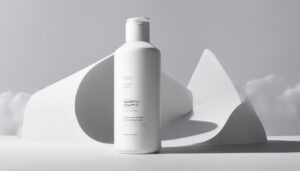Looking for a private label mouthwash manufacturer? Well, you’ve come to the right place! When it comes to choosing the perfect partner for your mouthwash manufacturing needs, there are certain qualities that you should look for. In this article, we’ll outline the top five must-have qualities in a private label mouthwash manufacturer to ensure a successful and fruitful partnership. So, let’s dive in!
Key Takeaways:
- Expertise in formulation and ingredient selection is crucial for creating high-quality mouthwash products.
- Ability to produce multi-claim products for dental care is essential for meeting the diverse needs of consumers.
- A focus on clinical efficacy and patient acceptability ensures that the mouthwash delivers the desired results.
- Commitment to controlling dental plaque is important for maintaining oral hygiene and preventing dental problems.
- Understanding the therapeutic effects of active ingredients is necessary for creating effective mouthwash formulations.
Understanding the Role of Abrasives in Mouthwashes
Abrasives play a crucial role in mouthwashes, helping to remove deposits from teeth without causing damage to the enamel. The selection and concentration of abrasives are essential in ensuring the safety and effectiveness of the product.
Common abrasives used in mouthwashes include calcium carbonate, calcium phosphate, and silica hydrate. These substances have different hardness and particle sizes, which directly impact their abrasiveness. The RDA method, widely used to measure the abrasive effect of toothpastes, also applies to mouthwashes.
Abrasives in mouthwashes should have a pH range from weakly acidic to weakly alkaline, and they should be insoluble in water. This ensures that they can effectively remove deposits without causing harm. Additionally, abrasives should be white powders, providing a visually appealing product.
The Role of Abrasives in Mouthwashes
“Abrasives are substances used in toothpastes and mouthwashes to remove naturally occurring deposits from teeth without scratching the enamel.”
Understanding the role of abrasives in mouthwashes is crucial for manufacturers to create effective oral care products. The appropriate selection and concentration of abrasives, such as calcium carbonate, calcium phosphate, and silica hydrate, help maintain dental hygiene without causing harm. By carefully considering the abrasiveness, pH, and physical properties of abrasives, manufacturers can ensure the safety and efficacy of their mouthwash formulations.
The Role of Binders in Mouthwashes
When it comes to the formulation of mouthwashes, binders play a crucial role in ensuring the stability, viscosity, and overall quality of the product. Binders help prevent the separation of powder and liquid ingredients, ensuring that the mouthwash maintains its desired form throughout its shelf life. One of the most commonly used binders in mouthwashes is sodium carboxymethylcellulose (CMC). Not only is CMC compatible with other ingredients, but it also offers stability and is relatively cost-effective.
In addition to CMC, other binders such as sodium alginate and carrageenan are used in mouthwashes to provide the desired texture and thickness. These binders help enhance the dispersion, foaming, and rinsing properties of the mouthwash, ensuring a pleasant user experience. The selection of the appropriate binder is crucial in achieving the desired product characteristics, as different binders can have varying effects on the final formulation.
To understand the importance of binders in mouthwashes, it is essential to consider their impact on toothpaste formulation as well. Binders in toothpaste help maintain the paste’s shape, prevent separation, and provide the necessary viscosity for effective brushing. Without binders, toothpaste and mouthwashes would lack the desired consistency and would not be as user-friendly.
The Role of Binders in Mouthwashes
“Binders are like the glue that holds a mouthwash together. They ensure that the product remains stable and provides a satisfying experience for the user. With the right binder, a mouthwash can deliver its intended benefits effectively.”
In summary, binders are an essential component of mouthwashes, ensuring that the product remains stable, provides the desired texture, and delivers the intended benefits. Sodium carboxymethylcellulose, sodium alginate, and carrageenan are commonly used binders that contribute to the overall quality and user experience of mouthwashes. The selection of the appropriate binder is critical in achieving the desired product characteristics, and without binders, mouthwashes would lack the necessary stability and consistency for effective oral care.
| Binder | Key Characteristics | Examples of Use |
|---|---|---|
| Sodium carboxymethylcellulose (CMC) | Compatibility with other ingredients, stability, relatively low cost | Mouthwashes and toothpaste |
| Sodium alginate | Thickening and stabilizing properties | Mouthwashes and toothpaste |
| Carrageenan | Texture-enhancing properties | Mouthwashes and toothpaste |
The Role of Other Key Ingredients in Mouthwashes
In addition to the abrasives and binders discussed in the previous sections, mouthwashes may contain a variety of other key ingredients that contribute to their effectiveness and therapeutic benefits. These ingredients include antimicrobials, essential oils, and heavy metal salts.
Antimicrobial agents such as chlorhexidine are commonly used in mouthwashes due to their broad-spectrum effectiveness against bacteria, spores, and fungi. These agents help to reduce the risk of gum disease, tooth decay, and bad breath. Essential oils, including thymol, eucalyptol, and menthol, also play a significant role in mouthwashes. These oils have natural antibacterial properties and can help to mask sulphides responsible for bad breath, providing users with a refreshing and pleasant experience.
Furthermore, heavy metal salts like zinc chloride and tin fluoride are often added to mouthwashes for their plaque-inhibiting properties. These salts can help to prevent the formation of dental plaque and reduce the risk of tartar buildup. By incorporating these ingredients into mouthwashes, manufacturers can offer products that not only freshen breath but also provide added oral health benefits.
Table: Key Ingredients in Mouthwashes
| Ingredient | Function |
|---|---|
| Antimicrobials (e.g., chlorhexidine) | Effective against bacteria, spores, and fungi, reducing the risk of gum disease, tooth decay, and bad breath. |
| Essential oils (e.g., thymol, eucalyptol, menthol) | Natural antibacterial properties that help mask sulphides responsible for bad breath. |
| Heavy metal salts (e.g., zinc chloride, tin fluoride) | Plaque-inhibiting properties that prevent the formation of dental plaque and reduce the risk of tartar buildup. |
Combining these key ingredients allows mouthwash manufacturers to create products that not only provide effective oral care but also offer users a pleasant and refreshing experience. By understanding the therapeutic benefits of these ingredients and their roles in maintaining oral health, manufacturers can continue to develop innovative and high-quality mouthwashes that meet the diverse needs of consumers.
The Benefits of Private Label Mouthwashes
Private label mouthwashes offer a range of benefits for both brands and consumers. One of the primary advantages is the ability for brands to customize their mouthwash formulations to meet specific requirements and preferences. This flexibility allows brands to create unique products that stand out in the market and cater to the needs of their target audience.
Another significant benefit of private label mouthwashes is the lower pricing compared to name-brand alternatives. Brands working with private label manufacturers can take advantage of cost-effective manufacturing processes and economies of scale, resulting in competitive pricing for their mouthwash products. This affordability appeals to cost-conscious consumers who are looking for high-quality oral care products at a more affordable price point.
In addition to customization and lower prices, private label manufacturers also offer a wide range of product variety and innovation. Brands can tap into the expertise of these manufacturers to explore new formulations, ingredients, and packaging designs. This versatility allows brands to cater to different market segments and expand their product offerings, ultimately increasing their market reach and competitiveness.
| Benefits of Private Label Mouthwashes |
|---|
| Customization of formulations |
| Lower prices compared to name-brand alternatives |
| Wide range of product variety and innovation |
“Private label mouthwashes provide brands with the opportunity to offer unique and customized oral care products at competitive prices, allowing them to stand out in the market and attract a broader consumer base.” – Oral Care Expert
In conclusion, private label mouthwashes offer numerous benefits, including customization, lower prices, and product variety. Brands can leverage these advantages to create differentiated products, reach a wider audience, and establish their unique identity in the highly competitive oral care market. With the flexibility and cost-effectiveness of private label manufacturing, brands can unlock their full potential and deliver exceptional mouthwash products to consumers.
The Importance of Self-Preferencing in Private Label Programs
Self-preferencing plays a crucial role in the success of private label programs. It allows retailers to showcase and promote their own private label products, effectively marketing them without relying heavily on expensive advertising campaigns. By giving preferential treatment to their private label items, retailers can offer competitive prices while attracting consumers with quality products. This strategy not only benefits retailers but also provides consumers with affordable alternatives to name-brand products. With self-preferencing, brands can differentiate themselves from the competition and build a strong presence in the market.
While there are concerns about self-preferencing and possible antitrust issues, current laws adequately address these concerns. Restricting self-preferencing would limit the growth and benefits of private label programs, hindering both retailers and consumers. In the highly competitive retail landscape, self-preferencing allows private label brands to thrive and provide a wide range of choices for consumers. It promotes healthy competition and fosters innovation, driving down prices and increasing product variety.
“Self-preferencing is a valuable strategy for retailers to promote their private label products and attract customers. It allows them to offer competitive pricing and showcase the quality of their own brands. By investing in their private label programs and using self-preferencing, retailers can build a strong customer base and differentiate themselves in the market.”
The Benefits of Self-Preferencing
- 1. Competitive Pricing: Self-preferencing allows retailers to offer private label products at lower prices compared to name-brand alternatives, providing cost savings for consumers.
- 2. Quality Products: Retailers can ensure the quality of their private label items through self-preferencing, as they have control over the manufacturing and formulation processes.
- 3. Increased Market Share: By promoting their own products, retailers can gain a larger market share and strengthen their position in the industry.
- 4. Customer Loyalty: Self-preferencing creates opportunities for retailers to build customer loyalty by offering unique and exclusive products.
Considering the benefits it brings to retailers and consumers, self-preferencing is an essential strategy in private label programs. While antitrust concerns may arise, the current legal framework is sufficient for addressing any potential issues. Embracing self-preferencing and supporting private label programs ultimately leads to a more competitive and diverse retail market.
The Impact of Private Labels on Consumer Welfare and the Economy
Private labels have revolutionized the consumer goods industry, leaving a lasting impact on consumer welfare and the economy. These affordable alternatives to name-brand products have become a favorite among cost-conscious consumers, allowing them to stretch their budgets and improve their quality of life. According to a study conducted by the Institute of Private Label Manufacturers Association, private label products are, on average, 20-30% cheaper than their branded counterparts.
This price advantage not only benefits consumers but also fosters competition in the market. As retailers invest in developing and promoting their private label products, it puts pressure on national brands to lower their prices and offer more competitive options. This healthy competition leads to lower prices for consumers across the board and increased product variety, providing more choices that cater to diverse preferences and needs.
In addition to consumer welfare, private labels contribute to economic efficiency. By reducing costs associated with marketing and advertising expenses, private label manufacturers are able to offer lower prices without compromising on quality. This efficient business model drives innovation and product development, as retailers continuously strive to create unique and high-quality private label products that meet consumer demands.
Private labels offer affordable alternatives to consumers, foster competition, and drive innovation, all of which contribute to consumer welfare and economic efficiency.
Furthermore, the private label industry plays a crucial role in job creation and economic growth. As retailers expand their private label offerings, they require a workforce to manufacture, distribute, and market these products. This leads to the creation of new jobs and stimulates economic activity within the local communities where these products are produced and sold.
In conclusion, private labels have a significant positive impact on consumer welfare and the economy as a whole. Their affordability, competition-driving nature, and contribution to economic efficiency make them a valuable choice for both consumers and retailers. Any attempts to restrict self-preferencing or hinder the growth of private labels would undermine these benefits and deprive consumers of the opportunities they provide.

Conclusion
In the competitive world of oral care products, partnering with a private label mouthwash manufacturer is a savvy move for brands seeking customized, high-quality solutions. These manufacturers possess the expertise and knowledge needed to formulate and produce innovative mouthwash products that meet specific requirements and preferences.
Private label mouthwashes offer an array of benefits for both brands and consumers. Not only do they provide cost-saving alternatives to name-brand products, but they also allow brands to expand their product offerings and cater to different market segments. With lower prices and increased product variety, private label mouthwashes empower consumers to make affordable choices without compromising on quality.
While there may be concerns surrounding self-preferencing and antitrust regulations, the existing laws adequately address these issues. Restricting self-preferencing would stifle the growth and hinder the numerous advantages that private label programs offer. It is clear that private label mouthwash manufacturers contribute to consumer welfare and economic efficiency, making them an invaluable asset for brands looking to thrive in the oral care market.
FAQ
What qualities should a private label mouthwash manufacturer possess?
Private label mouthwash manufacturers should have expertise in formulation and ingredient selection, the ability to produce multi-claim products for dental care, a focus on clinical efficacy and patient acceptability, and a commitment to controlling dental plaque.
What are abrasives and what role do they play in mouthwashes?
Abrasives are substances used in toothpastes and mouthwashes to remove naturally occurring deposits from teeth without scratching the enamel. They help in maintaining oral hygiene by ensuring cleanliness and preventing plaque build-up.
What are binders and why are they important in mouthwashes?
Binders are essential in toothpastes and mouthwashes to prevent the separation of powder and liquid ingredients and give the product its desired viscosity and form. They help in maintaining the stability and effectiveness of mouthwashes.
What are some other key ingredients found in mouthwashes?
Mouthwashes may contain antimicrobials, essential oils, and heavy metal salts. Antimicrobial agents like chlorhexidine are used for their broad-spectrum effectiveness against bacteria, spores, and fungi. Essential oils have bacteriostatic properties and help mask bad breath. Heavy metal salts inhibit plaque growth and tartar formation.
What are the benefits of private label mouthwashes?
Private label mouthwashes offer lower prices compared to name-brand alternatives, allowing brands to offer competitive pricing and attract cost-conscious consumers. They also provide a wide range of product variety and innovation, allowing brands to cater to different market segments and expand their product offerings.
Why is self-preferencing important in private label programs?
Self-preferencing allows retailers to effectively market their private label products without spending extensively on other forms of marketing. This results in competitive pricing and attracts consumers to private label products, thereby promoting sales and profitability.
What impact do private labels have on consumer welfare and the economy?
Private labels provide affordable alternatives to name-brand products, allowing consumers to stretch their budgets and improve their quality of life. They also foster competition in the market, leading to lower prices and increased product variety. From an economic perspective, private labels contribute to efficiency by reducing costs and promoting innovation, while also creating jobs and stimulating economic growth.
What is the role of a private label mouthwash manufacturer?
Private label mouthwash manufacturers play a critical role in providing brands with customized, high-quality products. Their expertise in formulation, ingredient selection, and manufacturing processes ensures the production of effective and innovative mouthwash products.
Shay labs is here to help!
Shay Labs is a trusted name in the cosmetic manufacturing industry. With years of experience and a strong commitment to quality, Shay Labs offers a wide range of private label manufacturing services for beauty, skin, hair, pet, and personal care products. Their state-of-the-art facilities and dedicated team ensure that every product is created with the utmost care and attention to detail. Contact Shay Labs today to discuss your next project. We’re here to help.
Recommended Reading
Expert Mouthwash and Toothpaste Contract Manufacturing and Private Label Services





